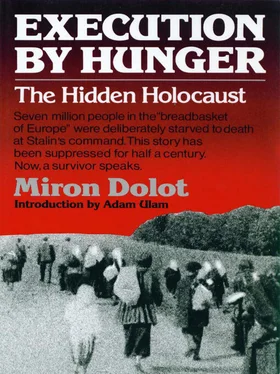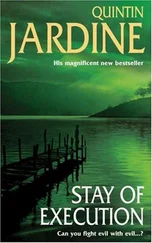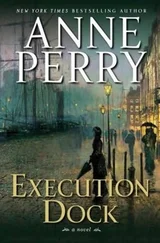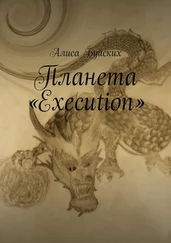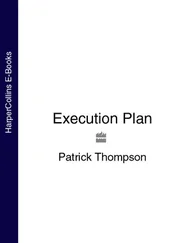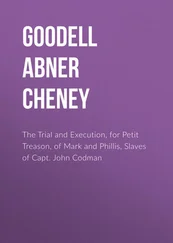The link leaders were trustworthy helpers of the brigade leaders. Character or skill were not requirements for such a position: personal loyalty was the only quality that counted.
As members of the collective farm, we found ourselves under a dual government. The village government continued its functions. The Hundreds, Tens, and Fives with their commissions, propagandists, agitators, and all kinds of other functionaries, continued their activities. They were occupied, as previously, with collectivization of those villagers who still remained outside of the collective farms, and with the collection of food for the state. The Sunday and evening meetings were still called regularly, and although we were now members of the collective farm, we still had to attend them. The commission never left us alone; it visited us regularly under one pretext or another. We still received visits from the officials, the propagandists, and agitators, and from Komsomol, Pioneer, and Komnezam delegations. We were still told to deliver food, to pay various taxes and dues, and to “voluntarily” buy state bonds; and we still were asked to contribute “voluntarily” to many state funds plus a multitude of international funds that helped Communist Parties abroad.
All these claims and demands on us doubled and intensified when we joined the collective farm, for, in addition to the all-village government, the kolhosp administration was, in reality, another local government. When there were no village or Hundred or Ten or Five meetings, we could expect a kolhosp membership meeting, or a brigade meeting, or a link meeting. At such meetings, the village officials would be replaced by the kolhosp officials. Almost every day we would have some kind of meeting or political indoctrination lecture in the field during the working hours. The agendas of the kolhosp meetings were almost identical to those of the village meetings. As a consequence, certain problems discussed at the Hundred meetings in the evening would be brought up the next day at the brigade meeting in the field.
We had to study the speeches of Party and government leaders, as well as new legislative enactments or executive measures. For example, when a speech of a prominent leader was delivered, it was officially sent through channels from the All-Union Center, through the Union-Republic governments down to the localities. As soon as it reached the village, it went down to the villagers through a dual channel: through the village government and the kolhosp administration. This speech would then be read and studied at the village subdivisions in the evenings and on Sunday, and then again read and explained at the brigade and link meetings in the field. This was the procedure with everything the central or local government wanted us to do or know.
The kolhosp court in our village was one of the innovations that came with the new order. Previously, all cases had been tried at the county center. Now, our village was to have its own court.
The officials called it the comradely court. In the beginning, it did not have any impressive or offensive punitive power. Its activities were limited to disciplinary action. It could only impose small fines or forced labor of not more than a week on the farm or at the communal works.
But this court soon began to try all cases, including those of criminal, civil, and political nature. In the hands of the Communists, the court became an inquisitive organ. It was given jurisdiction over all the villagers.
The judge of this court served at the pleasure of the Party. During a court session, the judge was flanked by the village Party leader, and the chairmen of the village soviet and the Kolhosp. The activity of the court, therefore, was directed by these officials until the concluding statements were prepared. At that time, the hitherto ignored members of the court read the verdict.
Among the matters which came before the court were insults to officials, jokes or anecdotes about members of the regime, damage to farm implements, thefts of farm property, absences from meetings and propaganda gatherings, delays in paying taxes, and the like. The verdict of the court depended largely on how much damage had been done to Party policy.
The punishments handed down by the court were harsh. Failure to arrive at work on time was punishable by a forced labor sentence of one to three months. More severe sentences were imposed on those whose “offenses” were of a political nature. Opposition to Party policy and insulting its executors were considered high treason. The kolhosp court usually submitted such cases to the Superior Court, or the state security organs, or both, with recommendation of a death sentence or a term in a “corrective labor camp,” as the concentration camps were known. Such recommendations were, no doubt, wholeheartedly accepted because those charged with such offenses never returned to the village.
Sessions of the kolhosp court were held almost every Sunday evening, with each session dealing with four or five cases. Court attendance by all villagers was obligatory. As it was impossible to accommodate all villagers at the court session at the same time, a schedule of court attendance by Hundreds was established. Usually, inhabitants of three Hundreds would be ordered to each session; punishment for failure to attend was a fine in money, or forced labor. The Court also tried those who failed to attend its own sessions.
I witnessed many of these court sessions. I still remember one in particular: it was on an evening in the spring of 1931. The setting was the former church. The organizers of the kolhosp court insisted on ceremony. The Thousander, Comrade Cherepin, was the first to appear on stage. After a pause for silence, he solemnly announced:
“Comrades, the kolhosp court!”
A hush came over the audience. Three farmers whom we all knew appeared on the stage: the judge was Sydir Kovalenko, a poor farmer who could hardly read or write. Two people’s assessors [16] People’s assessors—instead of a jury, Soviet courts of law have so-called people’s assessors, usually three in number. They are elected by a universal vote for two years, but the elections are usually fictitious. The candidates are approved by the appropriate Party organization. Although these assessors have equal rights with the judge in passing a verdict, in reality they are nothing but mute witnesses to the court procedures. The kolhosp court, although not a regular court of law, had at that time two people’s assessors.
followed; no prosecutor or defense counsel appeared. How these individuals became members of this court was a mystery to us all. They were just ordinary poor farmers without any Communist Party or Komsomol affiliations whatsoever.
When the members of the court had taken their places, the chairmen of the village soviet and the kolhosp appeared on the stage.
As soon as these officials sat down, the judge announced the first case. Two defendants appeared, each escorted by a militiaman. The judge began the reading of the indictment, and from it we learned that the defendants had been accused on three counts. The charges were agitation against the Soviet regime, attempting to undermine the authority of Party and government officials, and the spreading of Ukrainian nationalism.
This was the culmination of a rather amusing incident. I had witnessed the seemingly insignificant event that had led to this case, and I feel it is worthwhile to relate it in all its details.
There is a proverb that might best explain the mishap—“What the sober man retains—the drunkard reveals.” Being drunk, the defendants just spoke what they had thought, and what they thought was not in accordance with the Party line.
Since the start of collectivization, the necessities of life had almost completely disappeared from the shelves of the village store. Kerosene, matches, salt, and other common goods had become scarce. It had been announced one Sunday that a supply of herrings had arrived at the store, and that each person would be allotted one pound. Therefore, on that Sunday, a long line stretched along the square in front of the store. Petro Zinchenko, one of the defendants, wanted to buy his ration of herring. He was an honest and hard-working man, but he had the reputation of being a Sunday drunkard. Aside from this one weakness, he was a likeable and intelligent man. This Sunday, like every Sunday, he was drunk.
Читать дальше
